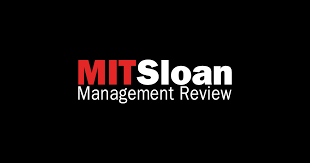
Informed i’s Weekly Business Insights
Extractive summaries and key takeaways from the articles carefully curated from TOP TEN BUSINESS MAGAZINES to promote informed business decision-making | Since 2017 | Week 369 | October 4-10, 2024 | Archive

C-Suite Hiring: Seven Mistakes Companies Still Make
By Barry Conchie and Sarah Dalton | MIT Sloan Management Review | October 08, 2024
Extractive Summary of the Article | Listen
Selecting the right candidate for an executive role ranks high on the list of the most consequential organizational decisions. Every selection decision is a prediction, but instead of ensuring those predictions are accurate, companies selecting leaders make easily correctable errors. Here are seven:
- Selection Decisions Are Left to Chance. Selection decisions made on instinct and gut feeling. We need to consider the implications for your organization’s selection methods. How many people are hired because they effectively wooed the interviewers? What biases are inherent in interviews that hinder an organization’s ability to be objective?
- Face‑to‑Face Interviews Reward Likability. The biggest impediment the authors see to effective selection is an overreliance on face‑to‑face interviews, and almost every company uses them. Simply put, face‑to‑face interviews are a waste of time unless they have a clear focus, use meaningful assessment criteria, and employ effective questioning. Likability in interviews has a disproportionate impact on how a candidate is weighed against others.
- Unstructured Interviews Show Poor Validity. Unstructured interviews cannot meaningfully predict future performance because they rely on the subjective opinions and interpretations of both the interviewer and the candidate. Structured could be equally problematic because of two reasons. First, typically no credible research has been conducted to explore the range of responses an interviewer might encounter and which of them is more predictive of job performance. Second, interviewers introduce their own preconceptions and biases when interpreting a candidate’s responses.
- Companies Mislead Candidates and Damage Their Brand. Companies want applicants to feel valued during the process, and this can result in inadvertently misleading candidates about their chances if communication doesn’t set clear expectations. Mismanagement of the process in this way is damaging to the candidate as well as the company’s recruitment brand. Instead send a disclaimer to candidates that clearly outlines expectations for the process.
- 360-Degree Assessments Are Subjective at Best, Biased at Worst. Research has shown that individuals demonstrate flaws and biases when evaluating others, and aggregating these flawed judgments doesn’t correct these errors. Violating confidentiality can also diminish a hiring company’s brand and will lead to the early withdrawal of otherwise excellent candidates.
- Traditional Search Firms Have Conflicts of Interest. Search firms that identify candidates and then determine their capabilities are guilty of a serious conflict of interest. They are most profitable when they can quickly recommend candidates, secure their commission, and then move on to the next assignment. They are implicitly incentivized to advocate for candidates who are already on their rosters rather than identifying new applicants who might be better suited for a role. We need to split sourcing and assessing between independent parties to have the best, rather than the first, candidate who will be hired.
- Confidential Reference Checks Are Unreliable. Every failed executive received glowing references from someone who vouched for them, claiming to know them well. So why did they fail? How can it be that a referee — someone who is prepared to put their reputation on the line to vouch for a candidate — can get it so terribly wrong? The reason is simple: People aren’t that good at picking people — even people they know well. The characteristics observed by a referee may not translate to an elevated role in a new company with a new boss, different expectations, and unique systems and processes.
3 key takeaways from the article
- Selecting the right candidate for an executive role ranks high on the list of the most consequential organizational decisions. But despite employing the common tools of due diligence when assessing whether someone will perform well in the role, most companies’ predictive powers rank alongside astrology in reliability.
- Every selection decision is a prediction, but instead of ensuring those predictions are accurate, companies selecting leaders make easily correctable errors. Seven of these are: Selection Decisions Are Left to Chance, Face‑to‑Face Interviews Reward Likability, Unstructured Interviews Show Poor Validity, Companies Mislead Candidates and Damage Their Brand, 360-Degree Assessments Are Subjective at Best, Biased at Worst, Traditional Search Firms Have Conflicts of Interest, and Confidential Reference Checks Are Unreliable.
- Any company can make improvements to its selection process and improve its predictive capability. At the heart of an effective, predictive selection process is a validated assessment that helps identify the individuals who are best suited to the role for which they’re being considered.
(Copyright lies with the publisher)
Topics: Hiring, Selection Process, Human Resource Management

Leave a Reply
You must be logged in to post a comment.